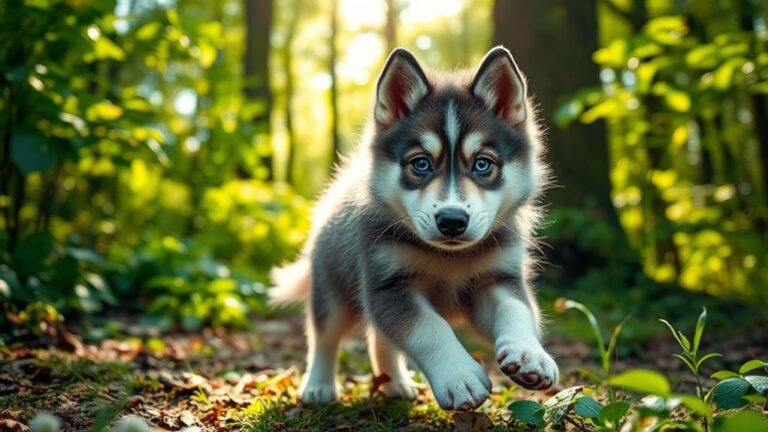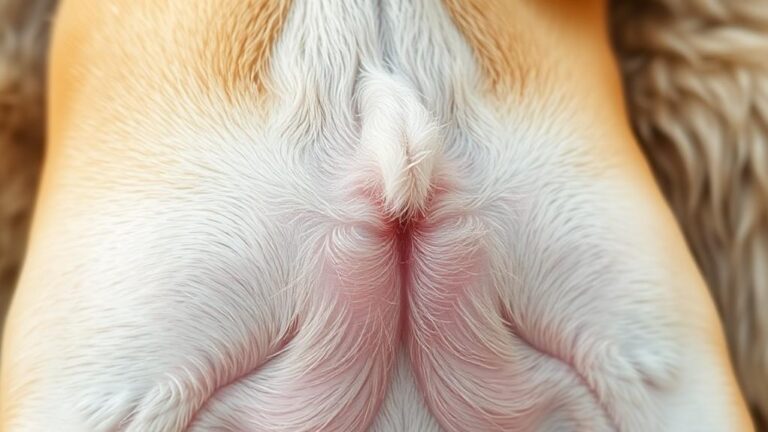A wolfdog puppy usually costs between $1,500 and $2,000 or more. The price can change depending on the puppy's family background and the breeder's reputation.
But buying a wolfdog puppy is just the start of your expenses.
Wolfdog owners must think about special food needs. They also need to pay more for vet visits because wolfdogs can have unique health issues.
Plus, you'll need to create a safe home for your wolfdog. Proper training is very important too. This all takes both time and money.
Before getting a wolfdog, it's crucial to understand the responsibilities. If you're interested in this special breed, take the time to learn more about how to care for them and what it takes to be an owner.
States Allowing Wolf Dog Ownership
If you are thinking about owning a wolfdog, it's important to know the laws where you live. Different states have different rules. For example, Alaska, Michigan, and North Dakota allow people to own wolfdogs if they had them before new laws were made. This means that if you already own a wolfdog, you might be okay.
On the other hand, some states like Minnesota, North Carolina, Ohio, Oregon, Texas, and Utah do not have clear rules on wolfdog ownership at the state level. In these places, each county can make its own laws. This means you need to check the rules in your county before getting a wolfdog. If you don't follow the laws, you could face serious trouble, similar to what happens in cases of animal cruelty.
In some states, there are strict rules for owning wolfdogs. This might include getting special permits or even facing complete bans on ownership.
It is very important to know these laws before you decide to bring a wolfdog home. Not following these regulations can result in losing your animal or getting in legal trouble. So, take your time and do your research to make sure you stay within the law!
Costs of Purchasing a Wolfdog
Buying a wolfdog puppy can be much more expensive than getting a regular dog. The cost of a wolfdog can be between $1,500 and $2,000 or more. This is higher than what you would pay for most purebred dogs.
If you are thinking of getting a wolfdog, you need to be ready for added responsibilities.
Wolfdogs can show different behaviors, so it's important to watch for signs that they might be having a hard time. For example, they might tremble or pant when they feel anxious. This means they might need extra care and attention from you.
In addition to the purchase price, there are other costs to consider. You will need to buy special food that meets their needs. Veterinary care might also be more expensive, as wolfdogs may require specific treatments.
Creating a safe and proper living space for a wolfdog is another expense you should plan for.
Training is crucial. Wolfdogs often need more training than regular dogs. You must be ready to spend time teaching them good manners and behaviors.
Owning a wolfdog is a long-term commitment. It's not just about the initial cost; you need to budget for all their needs. Make sure you can provide the care these unique animals deserve.
Lifespan Considerations for Wolfdogs
Wolfdogs are a mix between wolves and domestic dogs. They usually live for about 12 to 14 years, much like many larger dog breeds. Some people think that wolfdogs live longer than regular dogs, but that's not true. Both wolves and dogs can get sick from different infections, which can make them unhealthy and shorten their lives.
Just like Huskies and other dog breeds, a wolfdog's lifespan depends on several important factors. Genetics, or the traits they inherit from their parents, play a big role. Proper nutrition is also critical. Feeding them a balanced diet helps them stay healthy. Regular veterinary care is just as important. Regular check-ups and vaccinations protect them from illness.
When considering adopting a wolfdog, it's important to think about their lifespan. Understanding how long they might live helps you plan for their care. You'll need to consider everything from food to vet visits.
A wolfdog needs a lot of attention and a special environment to thrive. It is not just a pet; it's a long-term commitment.
Aggression and Safety Concerns
When thinking about getting a wolfdog, it's important to understand a few key things. Wolfdogs can be more aggressive than regular dogs. This means they might act differently in certain situations. Health problems can also change how they behave. For example, issues like trembling and panting can show that a wolfdog is stressed or scared.
Statistics say that wolfdogs are involved in a number of dog bite incidents. In fact, they rank sixth in dog bite fatalities. However, it's important to know that not every wolfdog is aggressive. Many can be gentle and friendly. Socialization and training are really important. This means taking the time to help them feel comfortable around other people and pets. Owners need to be committed to regular training.
When thinking about bringing a wolfdog home, safety is a big concern. You need to think about how they will act around children or other pets. Make sure you have the time and energy to train and care for them properly.
Ask yourself if your home can support the needs of a wolfdog. It's essential to be realistic about your ability to handle these challenges. Owning a wolfdog can be rewarding, but it also requires a lot of responsibility. Make sure you are ready for the challenge before making a decision.
Understanding Hybridization Factors
Hybridization is important in understanding animal behavior and genetics, especially when it comes to wolfdogs. Wolfdogs are the result of a wolf breeding with a domestic dog. This mix creates animals with different traits and behaviors. Not every dog breed has the same link to wolves. For example, Siberian Huskies share some ancestry with wolves, while poodles do not.
It's essential to know about purebred characteristics because these traits can show up in wolfdogs, making them unique.
However, foxes cannot breed with dogs. This is because foxes and dogs have different numbers of chromosomes. Understanding these genetic relationships is important for anyone thinking about getting a wolfdog. By knowing how wolfdogs are made, future owners can prepare for the challenges that come with them.
This knowledge helps in setting realistic expectations for behavior, care, and training. Wolfdogs might show traits from both their wolf and dog parents. For example, they might be more independent or have a strong prey drive from their wolf parent, while taking after their dog parent in other behaviors.
Conclusion
Owning a wolfdog puppy requires careful consideration. These unique animals blend the wild spirit of wolves with domestic dogs. The financial commitment includes not just the purchase price, which averages around $1,500, but also ongoing care costs. Legal regulations can vary greatly by state, adding another layer of complexity. Understanding their lifespan, behavior, and the responsibilities involved is essential. For those ready for the challenge, a wolfdog can be a fascinating companion, embodying both loyalty and wildness.



